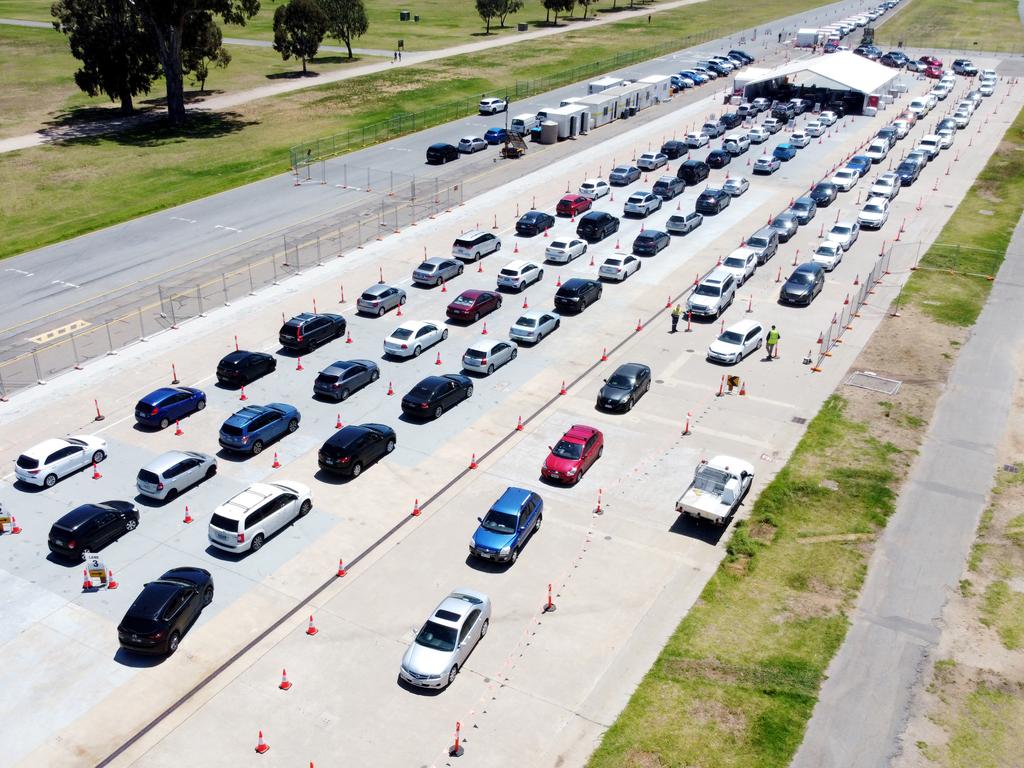‘Not a hotspot’: QLD slammed border shut too soon
Queensland has come under fire for shutting the border to Adelaide too soon with federal medical experts saying the outbreak had not reached ‘hotspot’ levels. It comes as the state Health Minister defended the quick action. VOTE IN THE POLL
QLD Coronavirus News
Don't miss out on the headlines from QLD Coronavirus News. Followed categories will be added to My News.
Queensland has come under fire for slamming its border shut to Adelaide too quickly when the COVID cluster outbreak had not met ‘hotspot’ criteria.
Federal Minister for Health Greg Hunt today said South Australia has not yet met the national hotspot definition and there is no advice from the Chief Medical Officer to support closing borders.
As of this afternoon, the total number of actual cases of the Parafield Cluster in South Australia was 20, with a further 14 suspected cases undergoing retesting. This number was confirmed later this afternoon. Earlier there had only been one confirmed new case overnight.
Brisbane Mayor isolates as Qld prepares to slam border shut to Adelaide
Coronavirus Australia: How Adelaide’s outbreak started
However under the national definition, a COVID hotspot can be declared when there are 0.4 cases per 100,000 people. This equates to 49 for South Australia.
While there is a national definition of a hotspot, states are free to make their own border decisions.
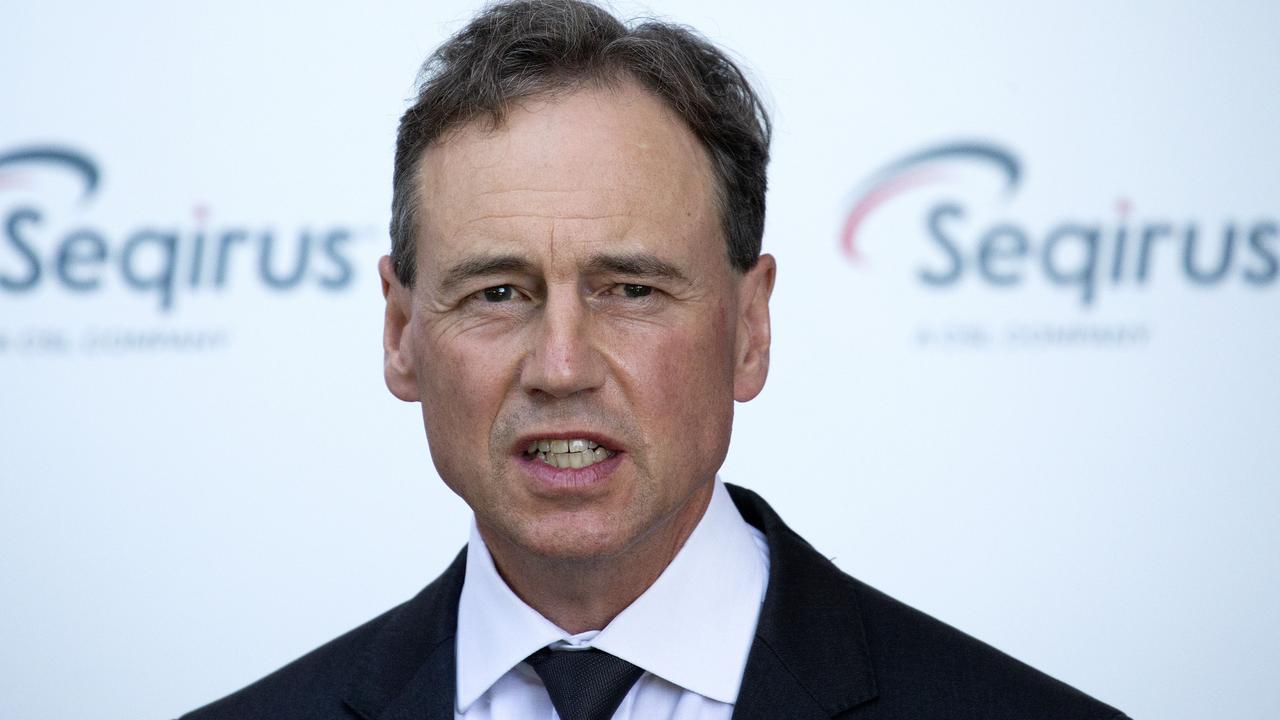
Western Australia and the Northern Territory also closed borders to South Australia yesterday, while Tasmania urged those arriving in the state to self-isolate.
Mr Hunt said he wanted states to act in proportion to outbreaks, which are to be expected in a pandemic.
“There is a national hotspot definition. South Australia has not reached that,” he said, speaking before the latest South Australia update.
“In fact, today’s news (of just three new cases initially) is good news. It means South Australia is less likely to face a widespread community outbreak.
“We’re not out of the woods yet, there’s more work to be done. I have to say, South Australia’s response is a model for early intervention.”
Mr Hunt said there was no medical advice from the Australian Health Protection Principal Committee to shut state borders.
“The medical advice that we had from the Chief Medical Officer Professor Paul Kelly, and that is consistent with the position of the AHPPC or the medical expert panel, is that it is appropriate to have enhanced screening (at airports),” he said.
“There has been no advice that any state or territory should be closed to any state or territory.”
He said all the positive cases detected so far were linked to the one cluster.
“Our message is very clear. There is a national hotspot definition. South Australia has not reached that,” he told reporters in Canberra.
The advice from the nation’s chief medical officer is that states should implement extra screening at airports and borders.
“There has been no advice that any state or territory should be closed to any state or territory,” Mr Hunt said.
“What we have seen here in the ACT, in Victoria, in New South Wales is exactly that; enhanced border screening, so they are looking for symptoms, they are looking for anybody who may have been in close contact, but they are allowing people to travel.
“Other states may choose to go further, but they’ll have to explain that.”
Queensland Health Minister Yvette D’Ath said the state had not slammed the borders shut to South Australia too early, despite there being only one new case overnight, increasing to three across the day.
Asked whether Queensland had pulled the trigger too early, Ms D’Ath said not at all.
“We have 18 cases in a matter of days in South Australia and, importantly, these are locally acquired cases in the community,” she said when speaking before the latest South Australia numbers were released.
“There is significant contact tracing going on.”
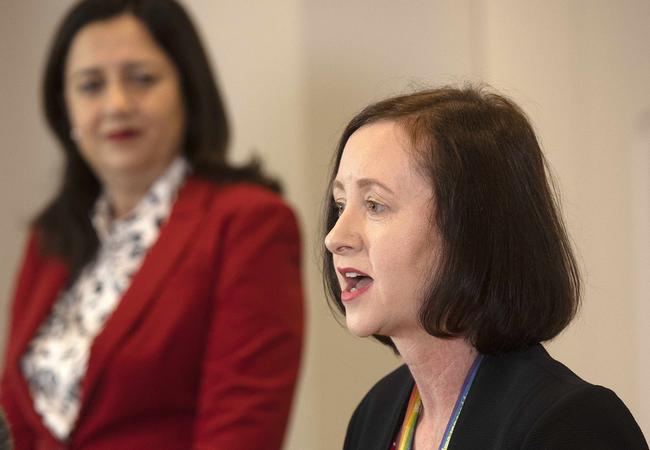
Ms D’Ath said authorities did not know what the total number of positive cases was yet.
She said Queensland wasn’t alone in shutting its borders, saying the state had taken action very quickly.
EARLIER: One new Qld case as Adelaide cluster grows
Queensland has recorded one new case of COVID-19 overnight – a returned overseas traveller currently in hotel quarantine.
There are nine active cases in Queensland with 1186 total cases since the pandemic started.
It comes as the nation is once again on a COVID-19 knife edge following a dangerous outbreak in South Australia, which has been branded a wake-up call for the country and put the road map to reopen Australia by Christmas in doubt.
State borders of Queensland, Western Australia and the Northern Territory slammed shut immediately to South Australia yesterday, with authorities rushing to contact about 7000 people who entered Queensland from Adelaide since last Monday.
They will be asked to get tested and isolate, while Queenslanders coming in from South Australia from today will have to go into mandatory hotel quarantine for two weeks.
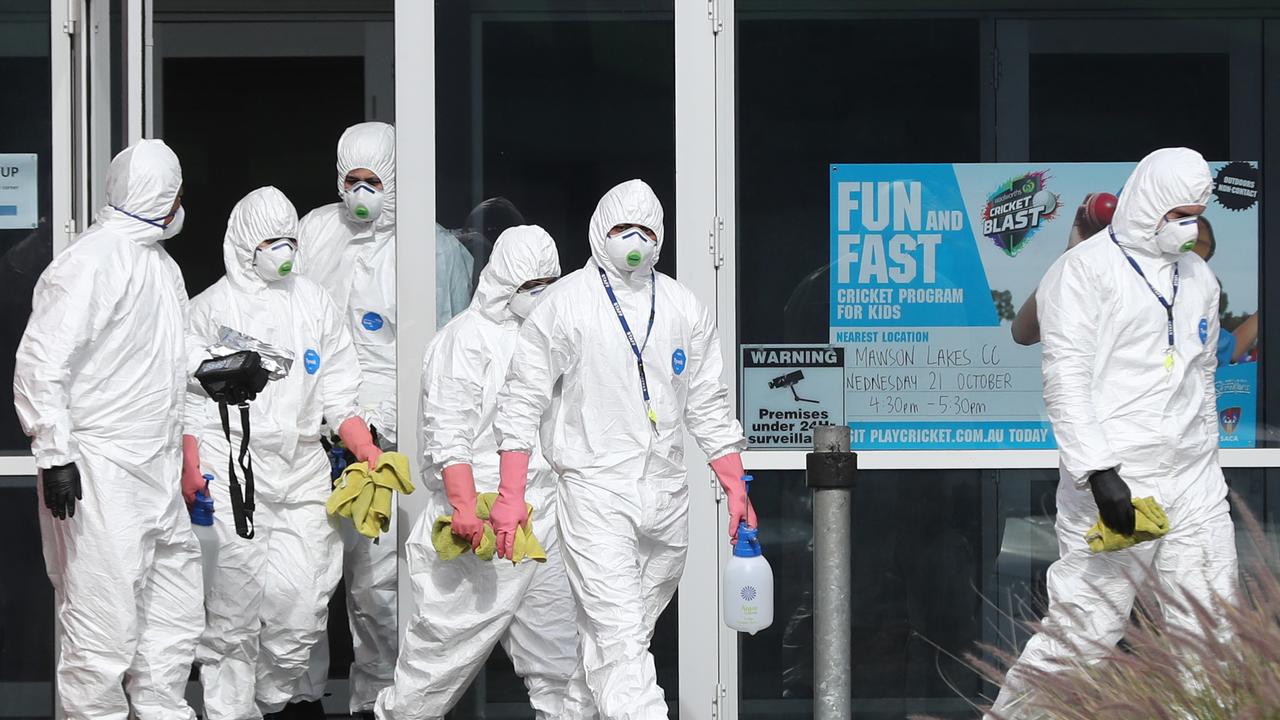
The nation’s chief medical officers held emergency talks on Monday morning following news of the Adelaide outbreak, which stemmed from a COVID medi-hotel.
The new cluster had blown out from three to 18 cases since Sunday – with a total of 34 active cases in the state – although many are connected to the same family.
Acting Chief Medical Officer Paul Kelly declared “we will defeat this virus”.
A series of strict lockdowns have already been implemented in SA in a bid to prevent another Melbourne-like outbreak, including shutting gyms, pubs and restaurants being limited to 10 customers, while people are being urged to work from home and limit visitors.
Premier Annastacia Palaszczuk slammed borders shut to Adelaide from midnight, while anyone who arrived yesterday had to get tested and isolate for 14 days.
That included Brisbane Lord Mayor Adrian Schrinner, who just returned from Adelaide.
Only Queensland residents returning home from Adelaide will be allowed to enter the state, but they will have to go into mandatory hotel quarantine.
Premier Annastacia Palaszczuk said the outbreak posed a concern to Queensland, pointing to the large number of flights that had arrived from Adelaide.
“The last thing we want to see is Queenslanders having to go into any form of lockdown,” she said.
“But this cluster outbreak is of concern.”
Queensland Chief Health Officer Jeannette Young described the outbreak as a rapid increase in cases, saying some had been in complex situations such as prison and school.
“So we need to get more information about where the risks are,” she said.
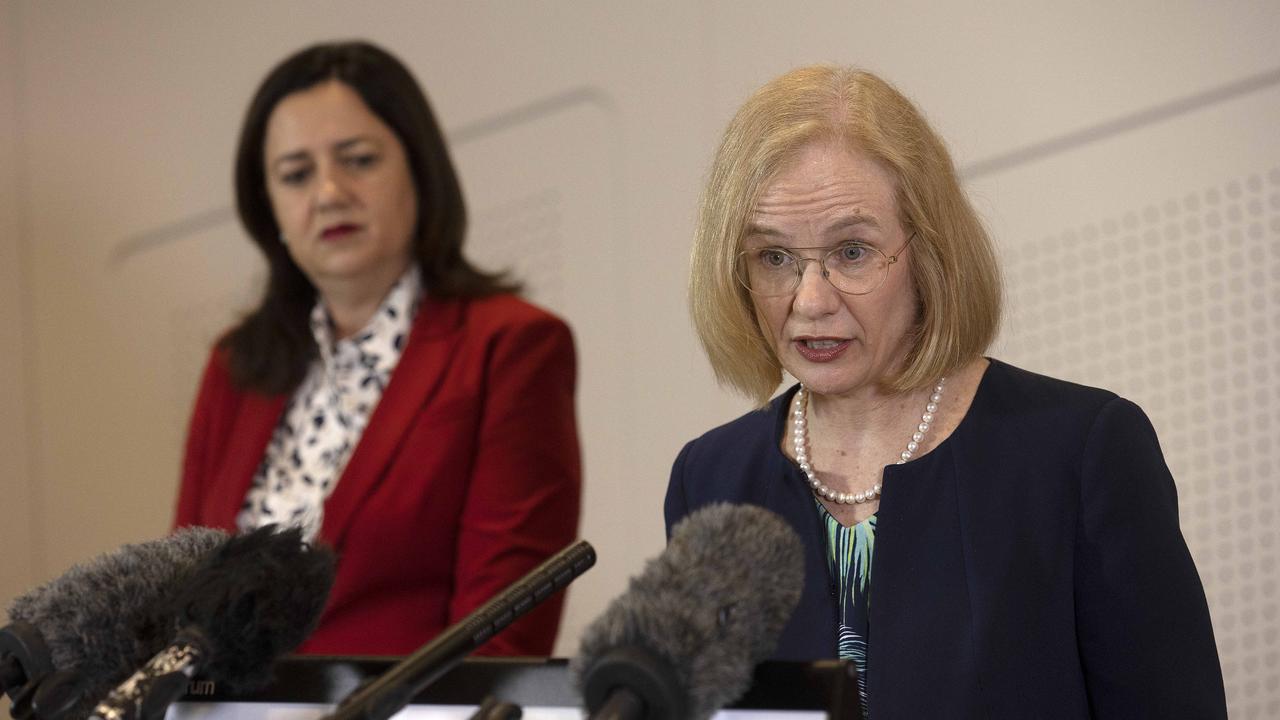
Dr Young said those people who had already travelled to Queensland from Adelaide should still self-quarantine for 14 days in an accommodation of their choosing, even if their COVID-19 test results come back negative.
But NSW has decided to remain open to South Australia, in addition to its planned reopening to Victoria next week.
It has created further confusion in Queensland as to how a “border bubble” arrangement with regional NSW will be policed if it is open to both states, with Queenslanders able to mix with South Australians and Victorians and then come back over the border.
Federal Health Minister Greg Hunt said further outbreaks were always to be expected and the acting CMO Paul Kelly said SA would get on top of the virus.
“It’s not what happened, but how we respond to it. That’s how we will defeat this virus,” Prof Kelly said.
Prime Minister Scott Morrison said the outbreak was a wake-up call for the country, but noted outbreaks had been caught on contained before – including in NSW and Queensland.
“The testing and tracing will now be put to the test in South Australia,” he said.
Mr Morrison said it was up to states on whether to impose borders, but he hoped they were a temporary response.
“What is important is these don’t get sort of locked in as part of another enduring disruption and as soon as South Australia is able to get on top of this I would expect that states would keep on the path that we have set towards Christmas,” he said.
“It is a very timely reminder here and all around the country, whether you have been behind borders or not, the virus doesn’t care.”
Mr Morrison said the virus could spread if people did not follow COVID-safe behaviours, like social distancing, hand hygiene and checking in when you go to a restaurant or bar.
“Borders don’t protect you from that,” he said.
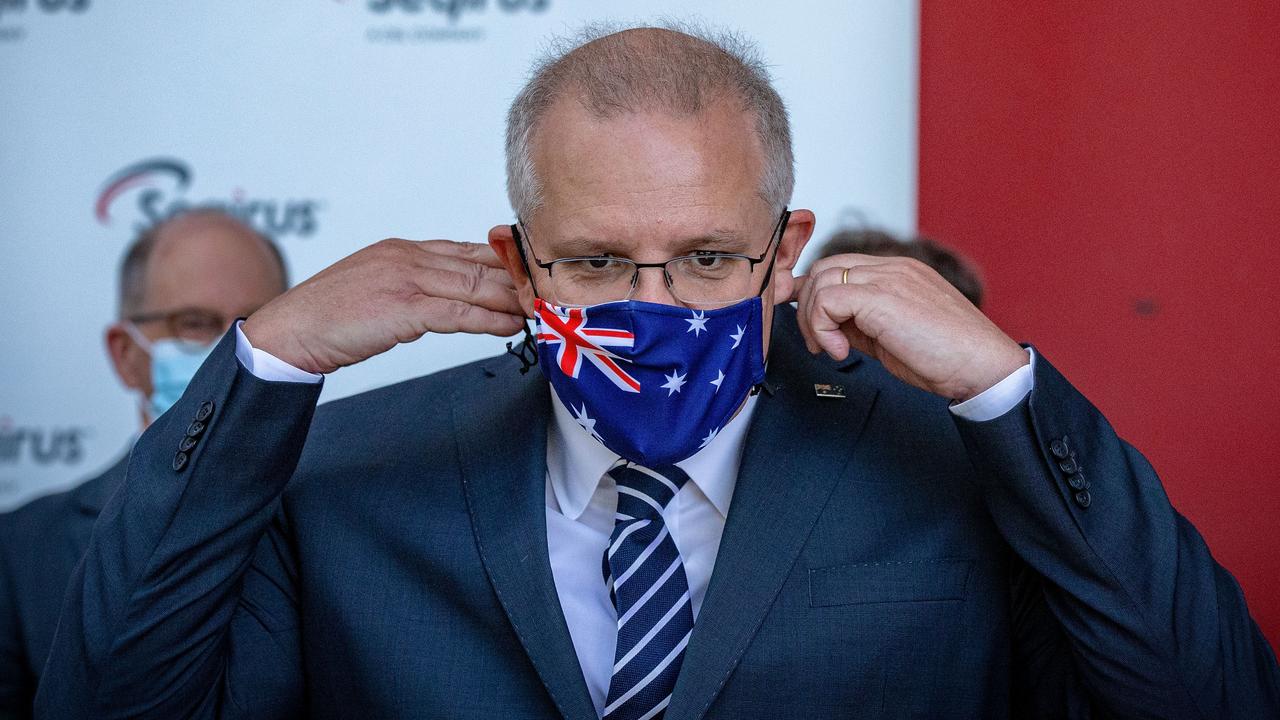
Dr Young said it was unlikely that the virus was circulating in South Australia prior to last Monday, but encouraged anyone with symptoms to come forward for testing.
“We know all the people who have come into our state from Adelaide, so we’re going to be able to contact them all and make sure that they get themselves tested,” Dr Young said.
She said Adelaide would need 28 days of no further unlinked community transmission for it to no longer be declared a COVID hot spot.
But she would not say if another border review would happen before Christmas, beyond the one that is scheduled for the end of November.
“I think it’s far too early to be discussing any of those issues,” Dr Young said.
“Let’s work out what it is, what it means and what we need to do.”
